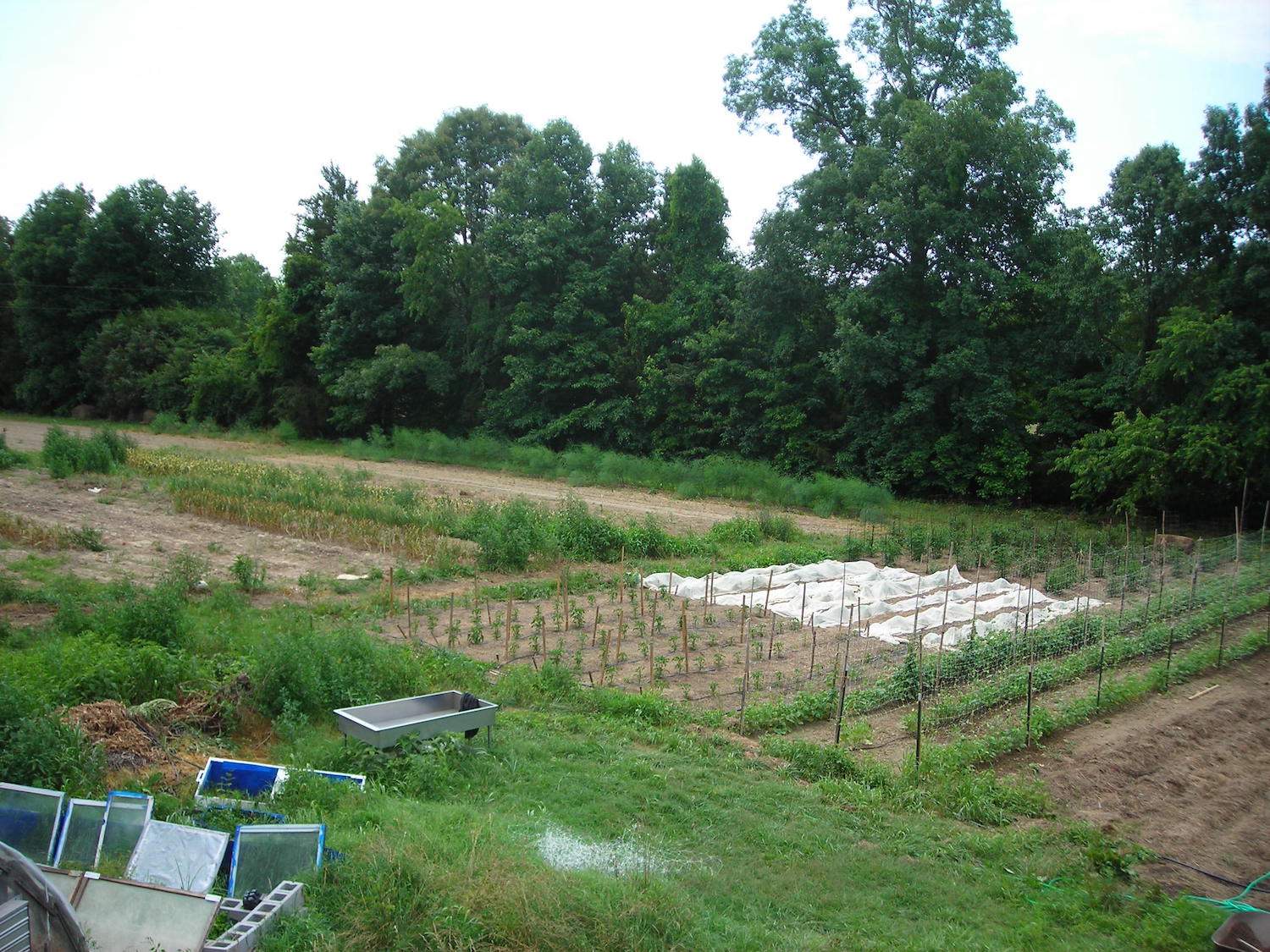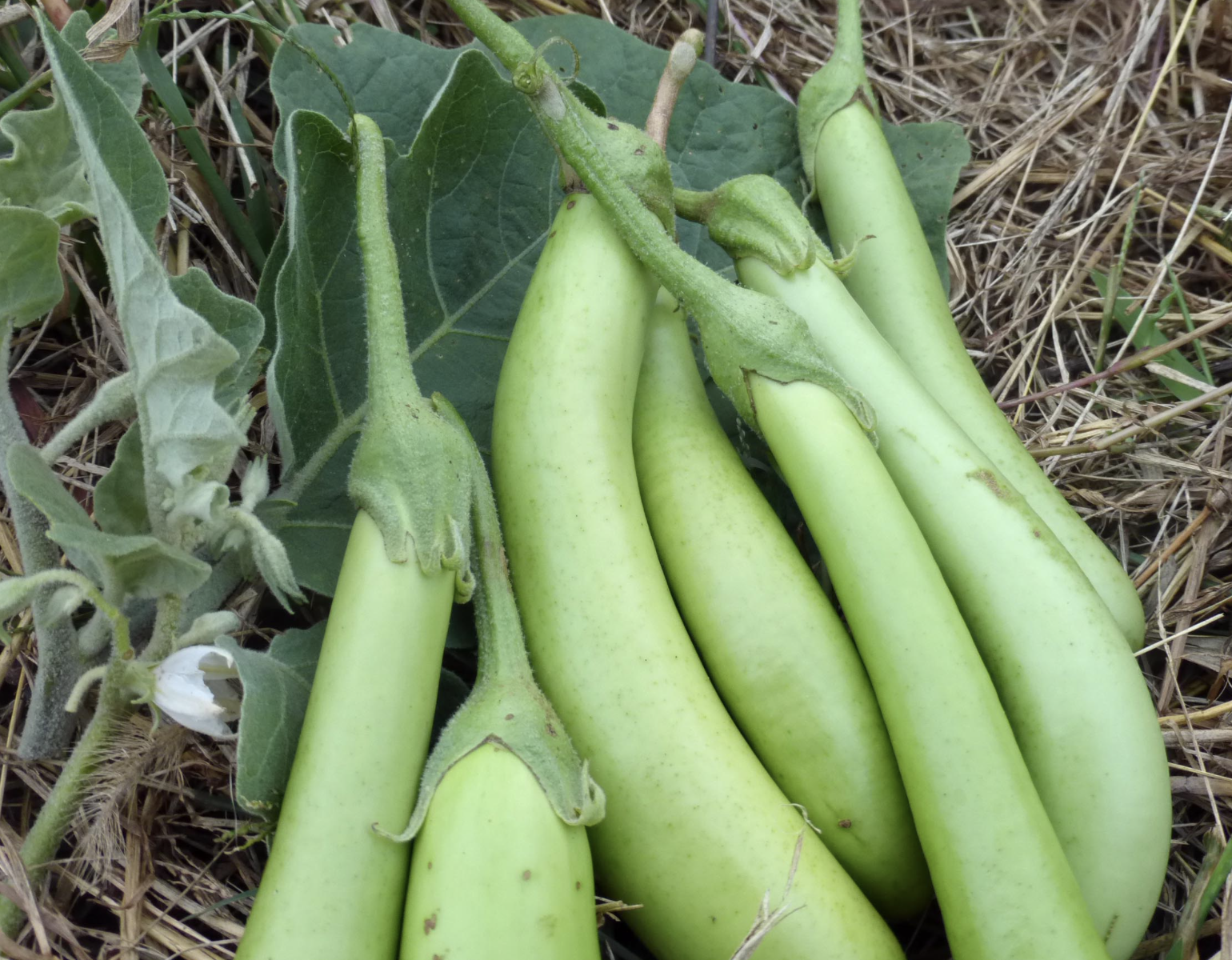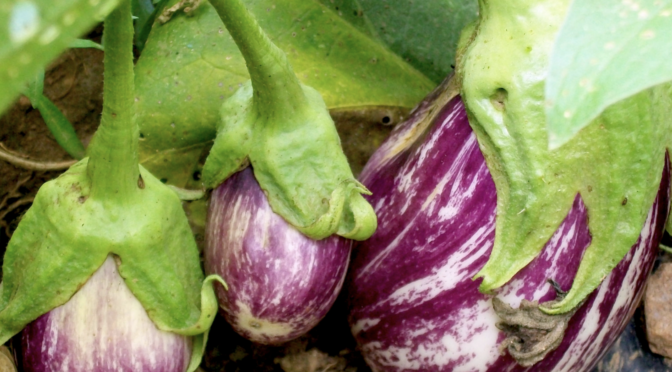Homegrown eggplants are tender, mild, and perfect for summer grilling or classic recipes like eggplant parmesan, baba ganoush, and ratatouille. These heat-loving vegetables can be tricky to grow, though. After years of growing eggplants, we’ve compiled some tips for success.
The Basics
Start your eggplants indoors 8 to 10 weeks before your last frost, and harden them off outdoors for 1 to 2 weeks before transplanting. Plant your eggplants in a sunny location with well-drained soil. Space them equidistant 24 inches apart or 20 inches apart in rows 30 inches apart.
Tips for Success
Eggplants can be challenging to grow, but these tips will ensure success.
Avoid setting plants out too early.
Eggplant seedlings are susceptible to cold temperatures. Attempting to harden them off too early can shock your plants and stunt their growth. If a late cold snap occurs, bring them outdoors during the day, but keep bringing them in at night until the temperature warms.

Keep pests off your seedlings.
Young eggplants are highly susceptible to pest pressure, especially flea beetles. There are a few different methods you can use to protect your seedlings.
- Harden seedlings off on a table at least 3 feet tall. Few issues occur at this height.
- Use organic control methods like pyrethrum or diatomaceous earth.
- Cut the bottoms off 1-gallon milk jugs and place them over the seedlings with the lids off.
- Use row cover to protect young eggplants and remove it just before flowering to allow pollinators to reach the blooms.
Older eggplants require less protection. They can still produce well even with quite a bit of flea beetle damage on their leaves.
Feed your eggplants.
Eggplants enjoy fertile soil that’s rich in organic matter. Adding several inches of finished compost to your bed before planting can encourage good production. You can also mix a bit of compost into your transplant holes.
If you’re growing eggplants in containers, giving them a bit of extra nutrition is a good idea, especially when they’re flowering and setting fruit. You can use an organic vegetable fertilizer or make your own compost tea.
Provide support for eggplants.
Eggplants loaded with fruit are prone to lodging or falling over. Set up stakes, tomato cages, or other supports early to ensure your plants don’t lodge later. Securing the plants while they’re still small will prevent you from damaging them or knocking off fruit later.
Keep the soil moist.
Eggplants produce best when they have moist soil but not soggy soil. Check the soil and water regularly to keep it consistently moist for best production.
 Apply mulch.
Apply mulch.
Mulching around your plants can help suppress weeds, keep the soil moist, and add additional organic matter. We like to mulch around eggplants with an organic mulch like straw or old leaves.
Harvest your eggplants regularly.
Regular harvesting will encourage your eggplants to keep producing. We find that the small fruits have the best eating quality. Eggplants are ripe when the skin appears glossy, and the fruit is resilient to thumb pressure. When your eggplants mature, harvest them by clipping the stem with scissors or garden snips.
Rotate your eggplants and other crops.
Eggplants can be affected by many of the same diseases, like verticillium wilt, that affect other nightshades, such as tomatoes, peppers, and potatoes. Rotate your crops yearly and avoid growing any nightshades in the same plot for at least two years.
Eggplants are tasty, beautiful additions to the summer garden. They can be fun to grow, too! Even beginners can succeed with eggplants if you follow a few simple tips.

